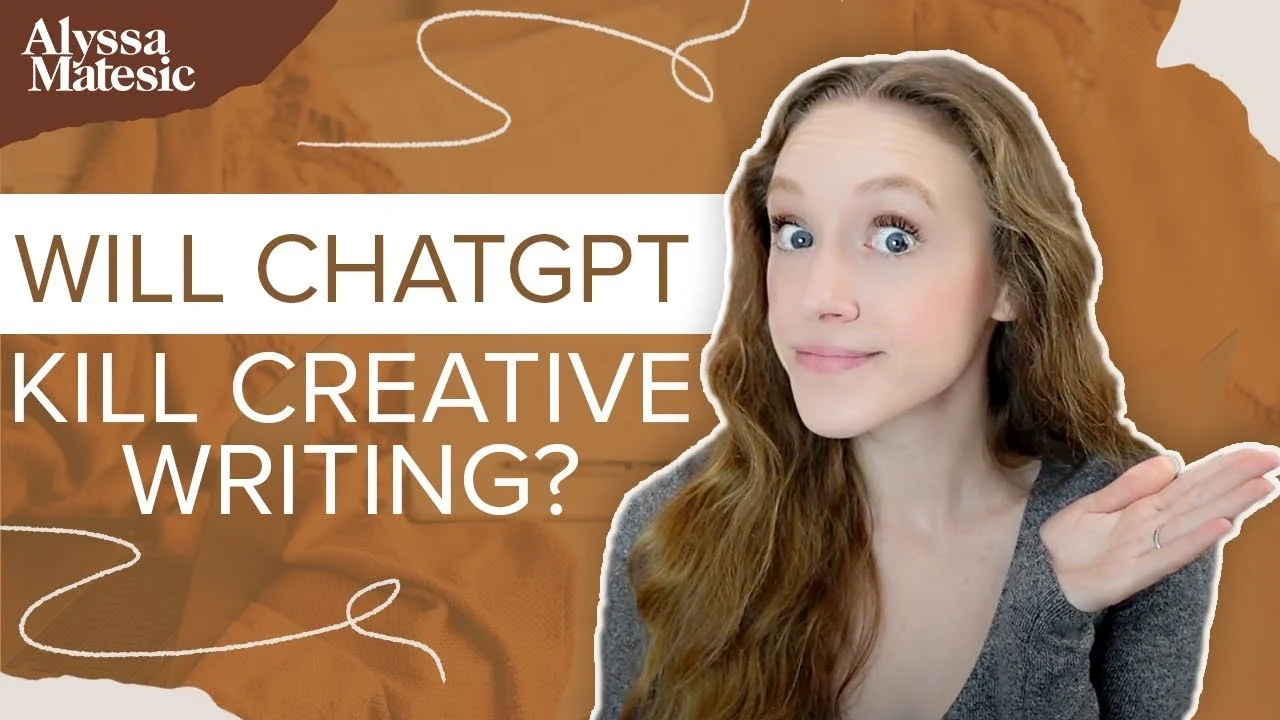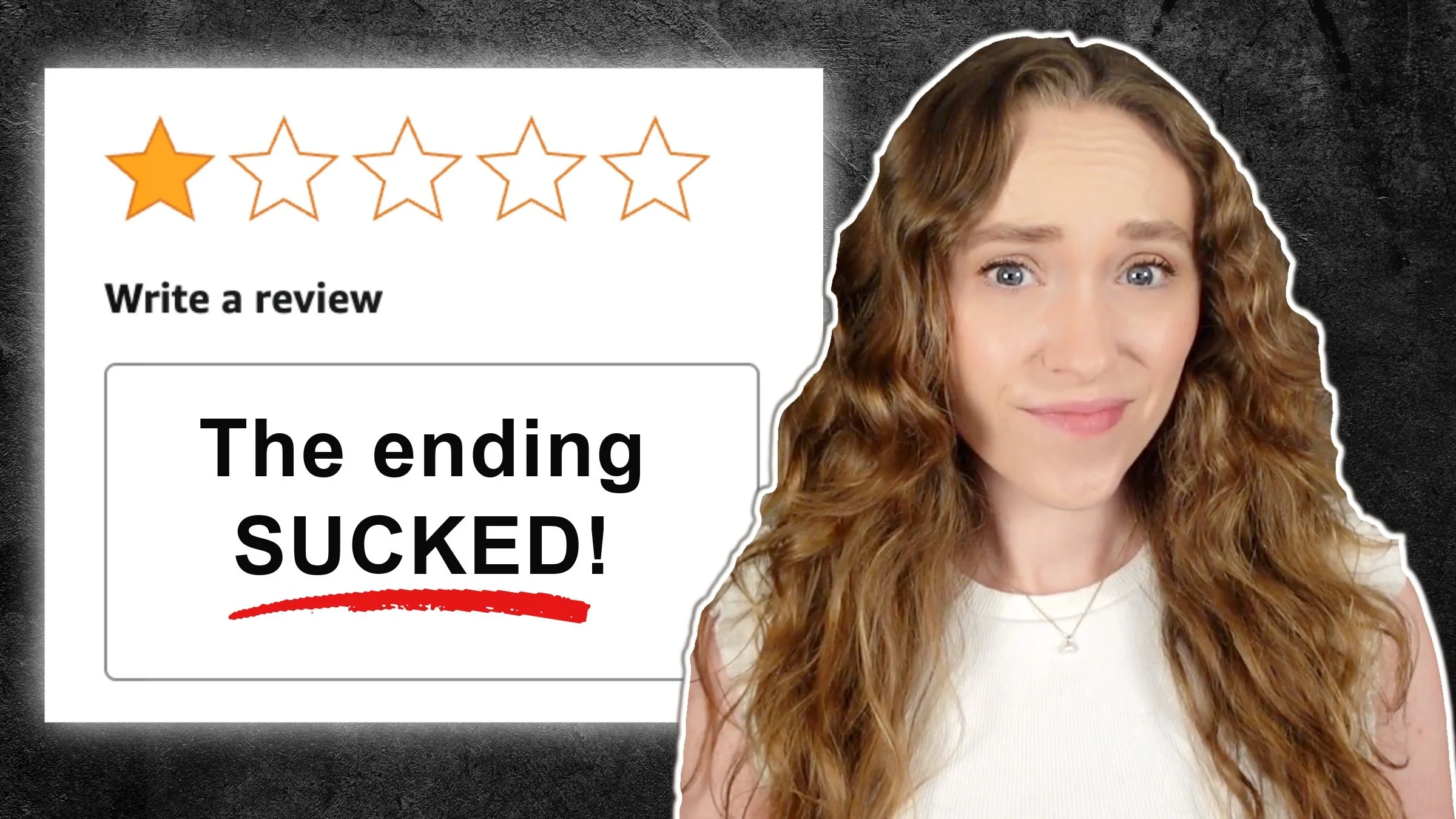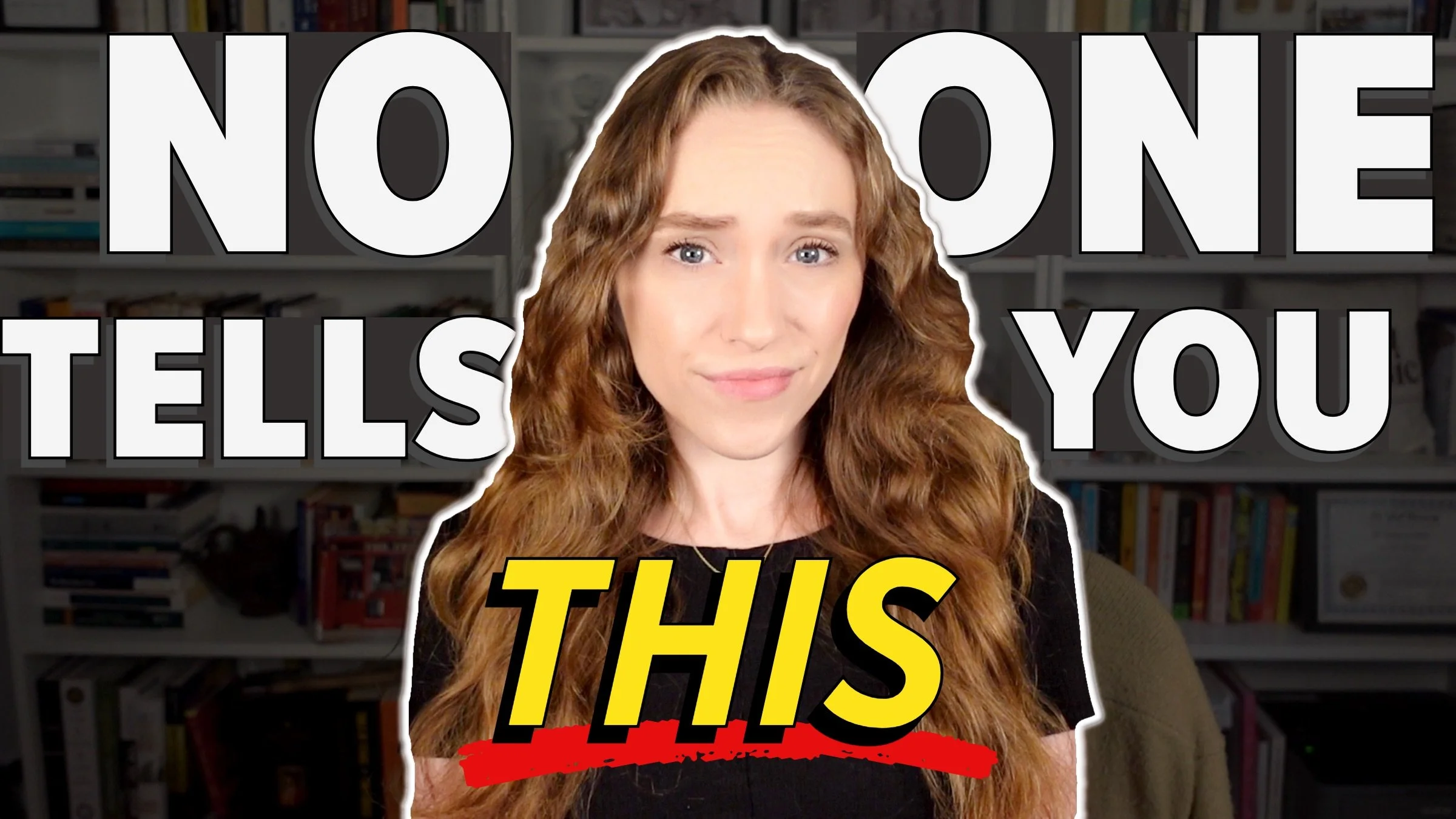ChatGPT and the Future of Writing: Will ChatGPT Replace Authors?
HIT PLAY OR READ THE POST BELOW:
It seems that everywhere we look these days, everyone is talking about AI and ChatGPT and how this technology is going to disrupt every industry across the global economy — including the arts.
While I am a professional book editor and certainly not an AI expert by any means, these conversations have made me think more and more about AI, ChatGPT and the future of writing. How is it going to affect the writing and book publishing industry, for better or for worse? Will ChatGPT replace authors someday?
As creatives, we might want to burrow into this romantic idea that we can just work on our art in isolation from technology, politics and society at large, but the truth is that as our world shifts around us, so does our art. So, today I want to talk about the question that seems to be on everyone's minds these days: Is AI and ChatGPT the end of creative writing as we know it?
I'm going to review some points that I've been seeing discussed among the writing community on ChatGPT and the future of writing.
Why ChatGPT Will Not Replace Authors
So, is AI the end of creative writing? My answer to this question is a firm no. I do not think that artistically crafted narratives written by human people are going anywhere. Storytelling ultimately is in our DNA as humans. It's how we connect, it's how we empathize with one another, and it is how we feel emotionally satisfied.
That is not to say that I think creative writing as an art is somehow excluded from the influence of AI and ChatGPT. I think we do need to address it, and potentially even embrace it — especially as it becomes more sophisticated and powerful. But let's talk about why I truly do see the value in human-written stories and why I don't think the art of creative writing is going anywhere, at least for the foreseeable future.
Here are three reasons why I believe ChatGPT will not replace authors, and why creatives shouldn’t worry too much about ChatGPT and the future of writing:
1. AI Content is Derivative
First, I think it helps to remind ourselves that AI content is derivative by design. While AI can generate stories from a series of prompts and may seem to come up with ideas out of thin air, remember that everything it spits out is based on the data set that it has been fed and trained on. This means that it can only create something out of what it knows and that limited library of information that it is aware of. Therefore, what it is generating is in some way or another something that already exists.
Now, a writer's power comes from their creativity and their ability to come up with something that is entirely new — a story that has never been told before or a story that has never been told in this way before, whether that is a unique turn of phrase or an innovative narrative technique. Writers have the capacity to craft new genres and new styles, and they push the bounds of what is possible with the written word. Think about how many new forms of prose and poetry have been created over the course of centuries — everything from Shakespearean sonnets to flash fiction.
While AI-generated writing might provide something that is engaging and interesting, and certainly readable and coherent, it cannot be truly creative in the constantly evolving landscape of creative writing because its outputs are ultimately based on some kind of data source. It can't just pull things out of thin air.
Writers’ creative imaginations are their superpower. It is their strongest asset as storytellers because they're thinking in terms of not just what has been done but what could be done. That’s why ChatGPT will not replace authors.
2. The Act of Writing is Part of the Art
Doesn't at least some of the enjoyment and fulfillment that you get out of writing come from the act of doing it itself, the actual process of putting text on a page, of creating something out of nothing? The act of writing can even be therapeutic or meditative.
If we outsource the actual writing component to AI, perhaps the generation of that story is something other than writing. Perhaps it is an entirely new art form, more akin to revising something that's already there or curating or refining queries until you get the perfect output. If you use AI to generate a story, of course you're going to have an output and a draft of some kind much faster than if you painstakingly put every sentence together yourself. But are you getting the same level of satisfaction out of it? Does the story then feel as intimately connected to you and your perspective?
There are reports that the next iteration of ChatGPT will be able to produce a 60,000-word novel in 20 seconds, which is mind-blowing. But just because you can prompt it to write a novel in 20 seconds, should you? If anyone can do that, what is special about that novel that you have created? Personally, I think that putting in the work to craft the story is what makes it an art and not just a task or an activity that anyone can do.
3. Creative Writing Requires Individual Expression
The last reason why I think creative writing is here to stay, even in the age of AI and ChatGPT, is because successful storytelling requires individual expression. Writing is ultimately a form of self-expression because each writer brings their unique style, perspective, worldview and experiences to the page. That's what makes their work so special and unique, and that is what makes writing a sacred act. While AI-generated writing may be grammatically correct and technically proficient, it lacks the artistry of an individual translating their heart and soul into a story.
AI obviously lacks human emotions and personal experiences, so it isn't able to replicate the emotional depth and authenticity that a human storyteller brings to their work — and that is ultimately what creates the most powerful storytelling.
Right now, AI can certainly be a part of a writer's generative process and ideation process. It's already doing things like helping come up with plot ideas, fleshing out details of a setting or a character's personality, but at least at this point, stories written by AI still require the human touch. That's because successful and compelling creative writing ultimately requires a writer behind it — someone who is bringing their unique voice, perspective and creativity to the work.
I hope this made you feel a bit more optimistic if you were concerned about ChatGPT and the future of writing, or AI ruining your dreams of becoming an author. I want you to embrace your power and your potential as a storyteller and know that ChatGPT will not replace authors as long as you keep writing.
Thanks so much for reading and happy writing!






